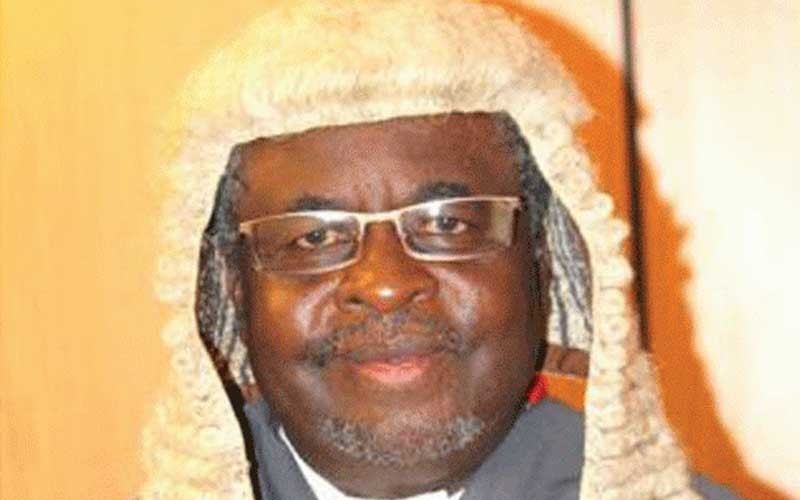
The Supreme Court has dismissed an application filed by a local housing company to bar a Supreme Court judge from hearing a case in which they are claiming US$30 million awarded to them by a lower court against the National Social Security Authority (NSSA).
NSSA had filed an appeal at the Supreme Court against High Court judge Justice Siyabona Musithu who had upheld a US$30m arbitral award to Housing Corporation Zimbabwe (HCZ) by an independent arbitrator Peter Lloyd.
HCZ had argued that Justice Uchena must recuse himself after hearing the first Supreme Court application that allowed the appeal.
The Supreme Court, however, allowed the appeal by NSSA challenging the arbitral award given to HCZ by the arbitrator.
A Supreme Court bench of Justices Antonia Guvava, Tendai Uchena and Samuel Kudya was set up to hear the appeal.
“The fact that a judge determined a preliminary issue in the appeal is not on its own a basis for an application for recusal.
“As a result, the application for recusal must fail. Accordingly, it is ordered as follows — the application for recusal be and is hereby dismissed with costs,” the Supreme Court bench ruled.
According to the facts of the matter, HCZ entered into a housing agreement with NSSA to construct 8000 units on behalf of NSSA at an agreed price per housing unit and in batches of 250 over an agreed time frame.
- Zimra garnishes gem miner’s bank accounts
- Zanu PF frustrating Mbare flats rehab: Mayor
- Nssa pushes for national health and safety standards
- Housing backlog shoots to 2m
Keep Reading
NSSA then made a payment upfront of US$16 million to HCZ in terms of the agreement.
HCZ constructed a total of 53 housing units which were completed and several others are in various stages of completion.
The court heard that by the first half of 2018, a dispute arose between the parties. This resulted in several meetings being held and correspondence being exchanged between the parties.
Following these complaints, HCZ wrote a letter addressed to NSSA on May 29, 2018, terminating the agreement. This resulted in the parties blaming each other for breach of contract.
HCZ then claimed US$56 million in damages after it had cancelled the agreement.
HCZ had maintained that it was entitled to terminate the agreement as it did and because of the termination, could claim damages in the sum of US$2 316 000 and US$56 842 364 together with interest thereon and costs from NSSA.
However, NSSA represented by advocate Thabani Mpofu denied breaching any terms of the agreement. NSSA said there was no basis on the part of HCZ to terminate the agreement.
NSSA also argued that HCZ was in breach of its contractual obligations and claimed its right to cancel the agreement, an award that HCZ must repay US$16 million in terms of an advance payment guarantee which was in place between the parties and claimed damages at the rate of US$5 000 per day from February 4, 2018 to the date of payment of the US$16 million and costs.
But the arbitrator dismissed NSSA’s claim and ruled in favour of HCZ.
The arbitrator then made an award to HCZ in the sum of US$30 million together with interest thereon at the prescribed rate of five percent per annum.
Aggrieved by the arbitrator ruling, NSSA approached the court to set aside the US$30 million award.
NSSA argued that the award by the arbitrator was so outrageous in its defiance of logic that it amounted to a serious violation of public policy.
It further argued that the award gave the HCZ a profit of US$30 million in circumstances where it had failed to build or deliver houses to NSSA in terms of the contract.
NSSA contended that the award could not stand as it violated public policy.
But HCZ opposed the application for setting aside the award and went on to apply for the recognition of the final award.
The matter was heard by Justice Musithu, who dismissed the application for setting aside the award and granted the application for registration of the award.
Aggrieved by the High Court decision, NSSA approached the Supreme Court.
The application for noting an appeal was heard by Supreme Court judges, Justices Susan Mavhangira, Uchena and Felistas Chatukuta.
However, a few days before the hearing of the appeal, HCZ lawyer advocate David Tividar wrote a letter requesting recusal of Justice Uchena saying he had been part of the bench in application that allowed the appeal to be heard.
Tividar in supporting his application for recusal said he was going to make arguments like those which he had submitted in the earlier court application and Justice Uchena may already have formed an opinion on the matter and as a result his client would not receive a fair hearing.
Mpofu for NSSA, however, opposed the application arguing that HCZ had no basis to make any complaint against the sitting of Justice Uchena saying the test for bias had not been sufficiently met.
The Supreme Court bench dismissed the application for recusal of Justice Uchena saying allegations of bias against a judicial officer must be so clear as to show that the failure by the judicial officer to recuse himself or herself will result in an unfair trial.







